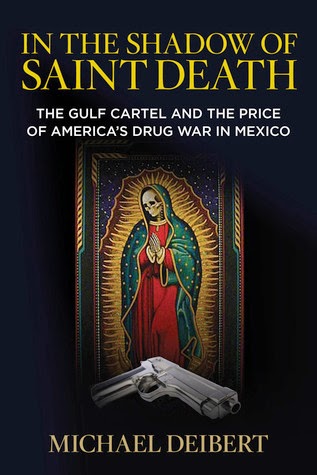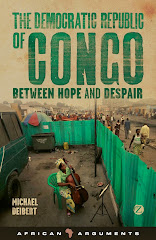Despite having an elected government in place for over a year now whose commitment to a free and independent press would appear to be genuine, recent events in Haiti have shown that alas that still does not guarantee an open environment in which the country’s journalists may operate.
On Tuesday evening, unidentified gunmen fired upon the premises of privately-owned de Radio-Tele Ginen in the Haitian capital Port-au-Prince. A street vendor was injured by flying glass sent shattering from a vehicle that was hit during the attack. No arrests have been made and no motive has yet been divulged for the shooting, but an attack of such a brazen nature against a media house cannot go without condemnation.
Also this week, Joseph Guyler “Guy” Delva, my successor as the Haiti correspondent for Reuters, said in an email message that he had been the subject of repeated threats and intimidation in recent weeks, including being followed while in his car by unknown persons. Displaying far more responsiveness than many of his predecessors, Police Nationale d'Haïti (PNH) chief Mario Andrésol promptly dispatched a police contingent to escort Delva -who also currently heads up the Commission indépendante d'appui aux enquêtes relatives aux assassinats des journalistes haïtiens (CIAPEAJ) - from the Petionville police station to his home.
In an email sent to Charles Arthur of the Haiti Support Group (reprinted here from the Association of Caribbean Media), Delva had the following to say:
I´ve been receiving anonymous (sic) phone calls and messages from indirect persons threatening my life over the past few days, particularly after I reported information about Senator Rudolph Boulos, a member of the country s wealthiest and most powerful families, having U.S. citizenship, which is against the constitution...I have documents that prove Mr Boulos was born in Manhattan and is still a U.S. citizen, even though he had managed to obtained a Haitian passport which he has no right to according to the Haitian constitution now in force. I understand the threats might be also fueled by the fact that I condemned last week the attitude of Senator Boulos who refused to answer questions from the investigative judge appointed on the case the murdered journalist Jean Dominique.
A dispatch filed by Delva for the Caribbean News Agency (CANA) last month, wrote that “in a document signed by Boulos before immigration authorities, he admitted that the Haitian passport he has obtained in August 31, 2005, was his very first Haitian passport. But Boulos – who was born in Manhattan ( New York ) on April 28, 1951 – had been living in Washington for years and has gone on numerous trips during the past years.”
I wrote to Delva asking the exact nature of this document but as of yet have received no response.
Later in his letter to Arthur, Delva also asserts that “Boulos is one of those people who had open conflicts with Jean Dominique. Dominique was in the forefront of the battle to make sure justice was made in the case of the children killed as a result of the consumption of poisoned drugs fabricated by the laboratory of Mr. Boulos.”
Rarely has one event gone through so many transformations of governance and continually remained as a dagger pointed at the heart of state commitment to press freedom and human right as the case of the murder of Radio Haiti-Inter director Jean Dominique and the station’s caretaker, Jean-Claude Louissaint, in April 2000. Occurring at the end of the first Préval government, the investigation was then thwarted at every turn by the government of Jean-Bertrand Aristide from 2001 until 2004, essentially swept under the carpet and ignored by the Boniface Alexandre/Gerard Latortue interim government of 2004-2006 and is once again presenting the thorniest of problems for Préval during his second mandate.
As Delva points out, in June 1996, René Préval’s then-Minister of Health, Dr. Rodolphe Mallebranche, revealed that, since April of that year, at least sixty-four children had been poisoned by two fever-reducing syrups made by the Pharval laboratories, a company under Boulos family control. The Valodon and Afebrile medicines the children were taking apparently contained a toxic component, diethylene glycol, which caused kidney failure. The Boulos family, for its part, denied having ever used the chemical in the manufacture of the medicine and said that the product the children had ingested was in fact a pirated version of their brand, which it had asked the government to remove from the marketplace without success. Jean Dominique, at the time, indeed, was particularly scathing in his criticism of the family and their business practices.
If, as Delva, charges, Boulos has refused to appear for the judges involved in investigating the Dominique/Louissaint murder before, and is currently refusing questions from Judge Fritzner Fils-Aimé (the current investigating judge in the case), it is time for Sentaor Boulos to set an example to his colleagues in the senate, who often seem content to hide behind immunity (itself a repugnant concept) to escape accountability for even the most trivial matters and submit to questioning in the investigation. If one has nothing to hide, one ought have nothing to fear. The families of Dominique and Louissaint, as well as the Haitian people, deserve all the facts in this case. They have waited long enough. No one can be above the law.
Previously, in a 33-page indicted sent by Judge Bernard Saint-Vil to State Prosecutor Josué Pierre-Louis in March 2003, Saint-Vil accused Philippe Markington (a member of the Aristide Foundation for Democracy who sometimes worked as an informant for the U.S. Embassy), Dymsley Millien, Jeudi-Jean Daniel, Ralph Léger, Ralph Joseph and Freud Junior Demarat of having taken part in Dominique’s killing . Persons with intimate knowledge of the investigation and the indictment have told me that the name of Harold Sevère, a former assistant mayor of Port-au-Prince and member of Jean-Bertrand Aristide’s personal cabinet thought by many to be the key link in the crime, had originally appeared in the indictment. Sevère’s name was removed following a meeting between Saint-Vil and then-Minister of Justice Calixte Delatour, allegedly on Aristide’s orders.
To the best of my knowledge, no link has ever been established between the above persons and the Boulos family.
A year after that indictment, speaking on Radio Vision 2000 (partially owned by the Boulos family), the Cité Soleil gang leader Robinson “Labanye” Thomas, reiterated that charge that Harold Sevère had been the one responsible for formulating and carrying out the Jean Dominique murder. Labanye also charged the involvement of Annette “So Anne” Auguste and the notorious Camille brothers, Ronald and Franco, employing the services of Guy “Ti Ponyet” Benson, a downtown gang leader who was also later murdered, to silence his knowledge of the crime.
Former deputy mayor of Port-au-Prince Jean Michard Mercier, also interviewed on Radio Vision 2000, claimed that Sevère had actually been present at the scene of the crime on that fateful morning.
During Mr. Aristide‘s term in office, Mario Andrésol (then Directeur de la Police Judiciaire), investigating judge Claudy Gassant (now Port-au-Prince’s chief prosecutor) and Dominique’s widow, Michele Montas (currently spokesperson for United Nations Secretary General Ban Ki-moon) all accused the Aristide government of personally and intentionally blocking the investigation.
Under the 2004-2006 interim government, there was barely any need for any active blocking, because virtually no progress at all appeared to be made by those charged with investigating the case.
Now, under the new Préval mandate, will justice be done?
The Haitian people deserve better. They deserve to know by whose hand and for what reasons Jean Dominique and Jean-Claude Louissaint had to die, just as they deserve to know who orchestrated the killings of individuals such as Mireille Durocher Bertin, Marc-Andre Durogène, Marie Christine Jeune, Claude Bernard “Billy” Lauture, Brignol Lindor, Jean “Pere Ti Jean” Pierre-Louis, Danielle Lustin, Jacques Roche, Yvon Toussaint and so many others, regardless of the political affiliations of the victims.
Is it too much to ask that one standard of justice be applied to all in Haiti, that the law be responsive to all? I think not.
Rather than proposing constitutional changes designed to propagate their own longevity and engaging in internecine power struggles, the Préval government and Haiti’s parliament should set about the people’s business, and set about delivering the justice that has been too long denied to so many. It is time for them to prove with actions, not words, that they respect and are willing to defend human rights and freedom of the press in Haiti.
Thursday, November 08, 2007
Democracy returns, but media continues to be under threat in Haiti
Subscribe to:
Post Comments (Atom)




No comments:
Post a Comment